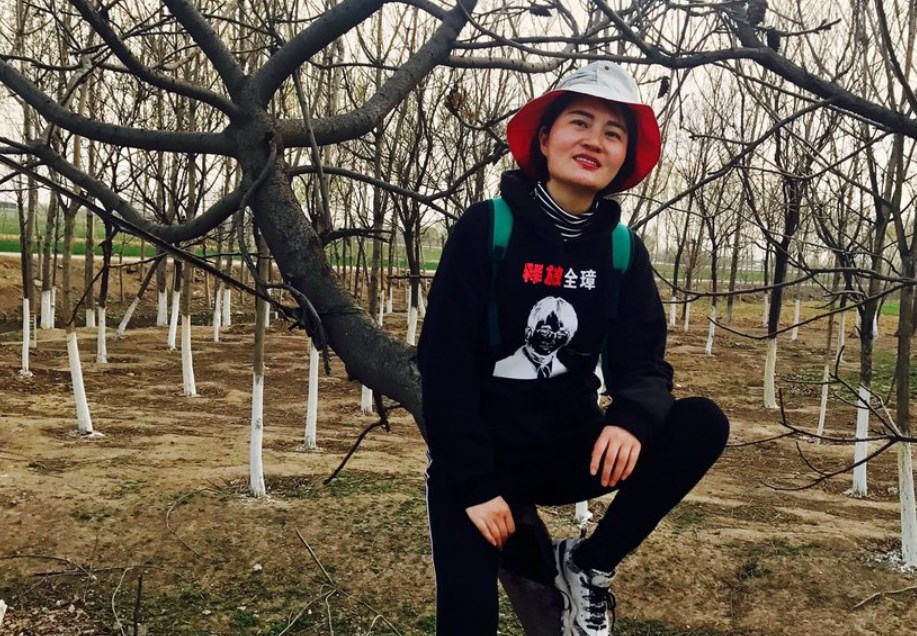If you care about human rights in China, April 5 should be circled on your calendar. On that day, human rights lawyer Wang Quanzhang, my old friend and colleague, after an outrageous series of abuses by the Chinese state, is set to walk free.
Wang, a defender of villagers’ rights and religious minorities, has been disappeared into Residential Surveillance at a Designated Location (RSDL), hidden under a false name in pre-trial detention for years, and subjected to a secret trial where he was refused legal representation.

Since disappearing in August 2015, he has suffered almost every possible rights abuse, including torture – a tragic example of the lengths China is willing to go to terrorise opponents.
The physical and mental torture of enforced disappearance under RSDL in China is recounted in detail in my book with Safeguard Defenders, The People’s Republic of the Disappeared, and heart-wrenchingly, the first signs that Wang was alive after he disappeared came in the 2017 account of another detained lawyer, Xie Yanyi, of his own experience.
Xie recalled hearing falling bodies and soft groans in the rooms above, wondering if the sounds of interrogation and howling in the middle of the night might have been those of his friend Wang. When his wife, Li Wenzu, was finally allowed to see him, some four years after he had disappeared, she tearily described a totally changed man.
Now, as he is set to go free, some may believe Wang’s suffering will finally come to an end, that he will be reunited with Li and their young son. I hope that too, but fear it is unlikely. He stands at risk of suffering yet another abuse: “non-release release.”
‘Non-release release’
China law scholar Jerome Cohen coined the term “non-release release” in 2016, then discussing the fake release of human rights lawyer Wang Yu. Like Wang Quanzhang, she had been held in secret for months under RSDL, where she was also tortured.

Following a forced confession in 2016, a trend documented by Safeguard Defenders, Wang Yu was “released” but kept under extra-judicial detention, forced to remain in her hometown and under 24-hour surveillance for nearly a year.
In another case, it was only after human rights lawyer Xie Yang recanted his testimony of torture in RSDL that authorities in 2017 granted him “release on bail.” But this too was a case of “non-release release,” and without any legal basis, Xie was kept under 24-hour surveillance by police and rather than remaining at his home forced to stay at a remote village in the mountains far from anyone.
In 2019, after he was scheduled to be freed from his two-year prison sentence another lawyer, Jiang Tianyong, instead of walking free was disappeared again. When colleagues arrived to collect him at the prison, authorities told them simply that he had been “taken away.”
China must free Wang Quanzhang
Since Wang was disappeared, his wife Li has also become a fierce defender, despite mounting intimidation from the police. She has become a symbol for many others whose loved ones have disappeared, and in recognition of both of their courageous defence of rights, Safeguard Defenders has nominated the couple for the 2019 Dutch Human Rights Tulip award.
But Wang may disappear again before they can reunite.

Li has reasons for concern. We hope Wang will be allowed to return to their Beijing home and his family, but instead fear he will face the ongoing nightmare of “non-release release.”
On March 24, Li received a hand-written letter from Wang in prison saying that after release he will likely have to return to his hometown in Jinan.
Those of us who know China can read between the lines. Wang risks being forcibly sent away, where he will be kept, apart from his police escorts, away from all others including his family. This is not release!
China must free Wang unconditionally, and end its practice of “non-release release.” The international community, diplomats, foreign correspondents and others should stay vigilant.
If he is not free on April 5, the next day we must all demand, “Where is Wang?”
